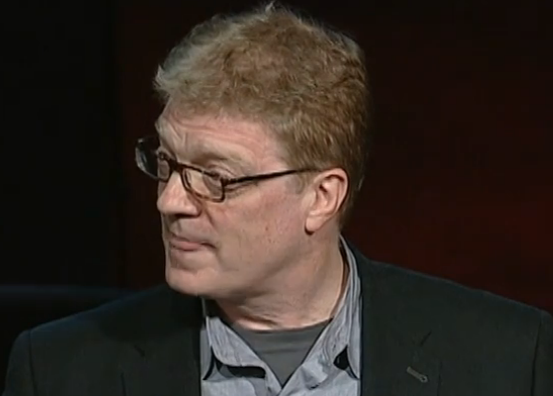But something strikes you when you move to America and travel around the world:
但搬到美國后,有些事使我印象深刻:
Every education system on Earth has the same hierarchy of subjects. Every one.
如果你周游世界,你會發現每個國家的教育體系都存在相同的學科等級制度。沒有例外。
Doesn't matter where you go. You'd think it would be otherwise, but it isn't.
不論哪個國家。你認為也許會有例外,但沒有。
At the top are mathematics and languages, then the humanities, and at the bottom are the arts.
排在最前面的學科是數學和語言,接下去是人文學科,藝術排在最后。
Everywhere on Earth. And in pretty much every system too, there's a hierarchy within the arts.
世界上所有國家都是如此。而且相同的還有,就是在藝術學科范圍內也有等級制。
Art and music are normally given a higher status in schools than drama and dance.
通常學校把美術課和音樂課看的較重要,然后是戲劇課和舞蹈課。

There isn't an education system on the planet that teaches dance everyday to children the way we teach them mathematics.
沒有哪個國家的教育體系天天安排舞蹈課,但卻每天都安排數學課。
Why? Why not? I think this is rather important. I think math is very important, but so is dance.
為什么?為什么不是每天安排舞蹈課呢?我認為舞蹈課很重要。我認為舞蹈課和數學課同樣重要。
Children dance all the time if they're allowed to, we all do.
如果有允許,孩子們會不停地跳舞,我們也一樣。
We all have bodies, don't we? Did I miss a meeting?
我們都有身體,對嗎?我錯過了一場會議嗎?
Truthfully, what happens is, as children grow up, we start to educate them progressively from the waist up.
事實上,隨著孩子年齡增長,我們開始教導他們別的東西。
And then we focus on their heads. And slightly to one side.
而隨著他們長大,我們更關注的是他們的頭腦。而且略微偏重大腦的一側。
If you were to visit education, as an alien, and say "What's it for, public education?"
如果你以一個外國人的身份來參觀我們的教育體系,帶著這樣的問題:“公辦教育的目的是什么?”
I think you'd have to conclude, if you look at the output, who really succeeds by this,
那么當你看到我們的教育體系產業化的發展,我相信,你就會明白是誰在真正從中受益,
who does everything that they should, who gets all the brownie points, who are the winners
是誰被教導著該做什么不該做什么,是誰得了滿分,誰是第一名。
I think you'd have to conclude the whole purpose of public education throughout the world is to produce university professors.
關于公辦教育的目的,我想你會得出這樣的結論,世界上所有的公辦教育都以培養大學教授為目的。
Isn't it? They're the people who come out the top. And I used to be one, so there.
難道不是嗎?因為大學教授是象牙塔尖上的人。我也曾是一名大學教授,也是塔尖上的人。











